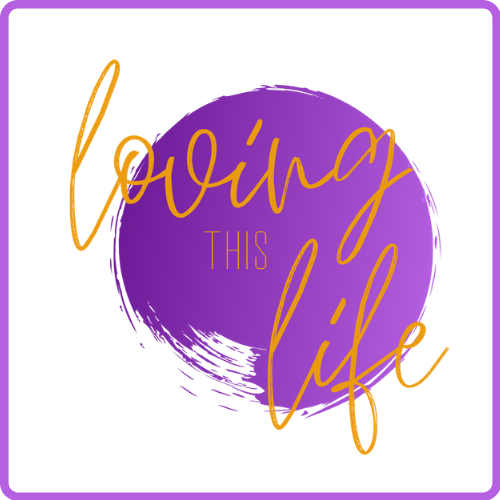One of the minefields you need to navigate when you are diagnosed with Fibromyalgia, or any chronic illness – is who needs to know? Who do I need to tell that I have Fibromyalgia?
It may seem like a very minor thing to some of you as you read this but working out who you tell that you have been diagnosed with a chronic illness, isn’t always simple. Sure, there are the obvious people that need to know:
- Your family – those that live with you day by day need to know about your diagnosis. They will already know that things aren’t right because of the symptoms you display daily, which caused you to seek a diagnosis in the first place.
But just as it may have been a relief for you to know you don’t have an illness that will kill you, so it will be for them as well.
- Your closest friends – like your family, are probably already aware that something is not right. They too, will be relieved to know that it isn’t terminal and will want to know how to care for you.
But after these people, there are things that you need to consider before telling others about your condition. Some people are very quick to put you “into a box” titled chronic illness or Fibromyalgia; or whatever the name of your condition. This is understandable to a point, because they are reflecting on their experience of people with chronic illness, but the trouble is, you don’t know what they mean when they say, “chronic illness”. They may have had experience with others who have had chronic illness which wasn’t very positive! When they think of these people, they think of how others have lived it out, for example, they may think they’re:
- Chronic whingers;
- Always back out of things at the last minute;
- Always focussed of themselves;
- Doesn’t make time to spend with friends, etc.;
- Talks about themselves all the time;
I’m sure you can add some more to the list. We’ve all experienced people like this (they don’t even need to have a chronic illness!!) The truth is the above list does describe some people who are chronically ill. But it doesn’t describe everyone, and it doesn’t have to describe you!
I would encourage anyone who has recently been diagnosed with Fibromyalgia or any chronic illness, to take your time and think about who you want to take the journey with, as you manoeuvre your way through working out what your life will look like now.
The next group of people you need to consider telling is your employer. Only you can really know the answer to this. Some jobs rely on us being 100% fit and healthy (eg pilots; those in the army/navy, etc;), in which case we really don’t have much of a choice.
I had been living with Fibromyalgia for 10+ years when I was reminded that it’s not always helpful when everyone knows about our condition. I started a new job, which was part-time and suited me quite well. The person I answered to knew that I had Fibromyalgia. (I hadn’t told her, but she knew through somebody else.) That was okay and didn’t bother me until a bit further down the track, when she was making decisions about whether I could take on a role with more responsibility than I’d currently had. It would mean more hours, but still not a full-time load.
I had thought it through and wanted to apply for the position. (I spent considerable time working it through; speaking to my husband about it – it certainly wasn’t a rushed decision.) So, I did apply and without taking time to consider anything, I was told no, it would be too much for me to manage with Fibromyalgia.
Up until this point I had proven very reliable; had worked harder than lots of others in the office; and had not let my Fibromyalgia stop me from being at work; relating well to others and completing my tasks above standard. So, why wouldn’t they even consider me for the job? Because I had Fibromyalgia. I honestly believe, if my boss hadn’t known about my illness, she wouldn’t have acted in the way she did. (Instead, I changed jobs; worked longer hours; took on more responsibility and managed it well.)
I tell that story for two reasons. Firstly, because I know there are others who have experienced the same thing and it has left them feeling confused and bruised. Like me, move on and learn from the experience! Secondly, I share it because I hope that those who are newly diagnosed will take time to consider whether they need to tell their employers, etc about their condition. It’s not that you’re wanting to be deceitful. If you know that your condition will affect your work, then you need to have a discussion with your supervisor.
As I said above, some jobs are reliant on a fully fit and able person taking on the daily tasks. It may bring harm to others if you continue as you are. But if you don’t know and haven’t worked out what you can manage on a day to day basis, then maybe it is good to take a little time and work out how you want to manage this. Or, others will manage it for you!
We all have different symptoms that we need to learn how to manage. For me, I experience some pain with a greater degree of fatigue. I have had to take some days off my work because of my fatigue, but no more than anyone else in the office has taken off with colds/flu, etc. The reason I encourage you to work out who you want to know about your Fibromyalgia is because you will need to live with their responses to your illness. That may seem insignificant to some, but for others, always being asked or told:
- “how are you today?”;
- “you poor thing, I don’t know how you manage it”;
- “do you need to rest?”.
…isn’t very helpful.
When people ask me “how are you?”, I have an internal process that goes like this:
- What do I want to say to this person?
- How will they react?
- Do I feel up to living with their response/reaction?
- How am I feeling today?
What a difficult question to answer!! Often, when people ask me how I am, I say “I’m okay”. It depends on who they are and how close they are to me, but I then may go on and say what I’m feeling internally and physically.
I’m not brushing anyone off by saying “I’m okay” – often I am saying it because I need to hear it. I am okay. I may be struggling with pain, fatigue and brain fog, but, I, Bron, am okay in myself.
When I hear myself say to others that “I’m feeling awful”; “I’m really flat today”; or “I’m not great” it’s too easy for me to accept that I’m talking about me as a whole person. This is where depression can take over so quickly, for me. I’ve had to learn to stop and remind myself that I am okay. I am doing the best I know how to live with this condition that has been plaguing me for 20+ years and I need to manage the pain and fatigue, but when I can see myself as body, soul & spirit and can affirm to myself that in lots of ways (in my soul & spirit) I am doing okay, I don’t get so overwhelmed.

